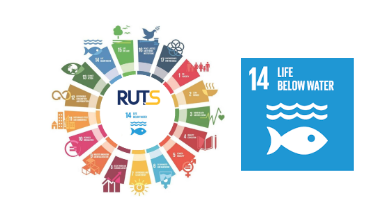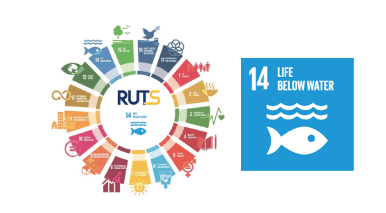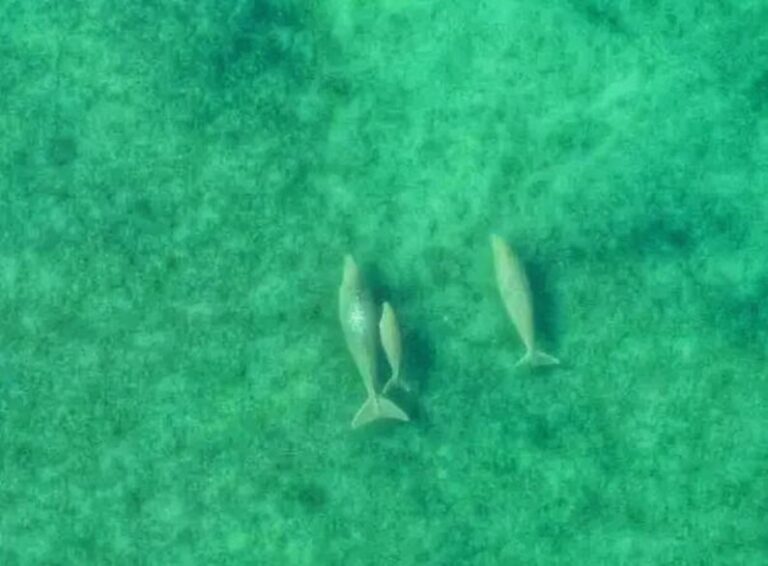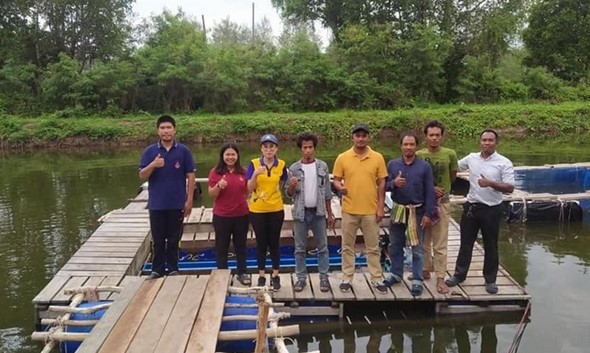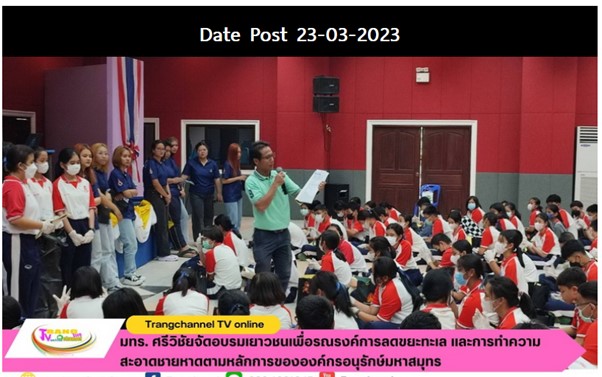SDG 14
Indicator 14.5.2
Research and Innovation
//
RUTS Laboratory Initiative: Monitoring Microplastic Pollution in Aquatic Ecosystem
| Reporters: |
Dr. Chanyut Sudtongkong
|
|
Dr. Thongchai Nitiratsuwan
|
//
October 31, 2024
//
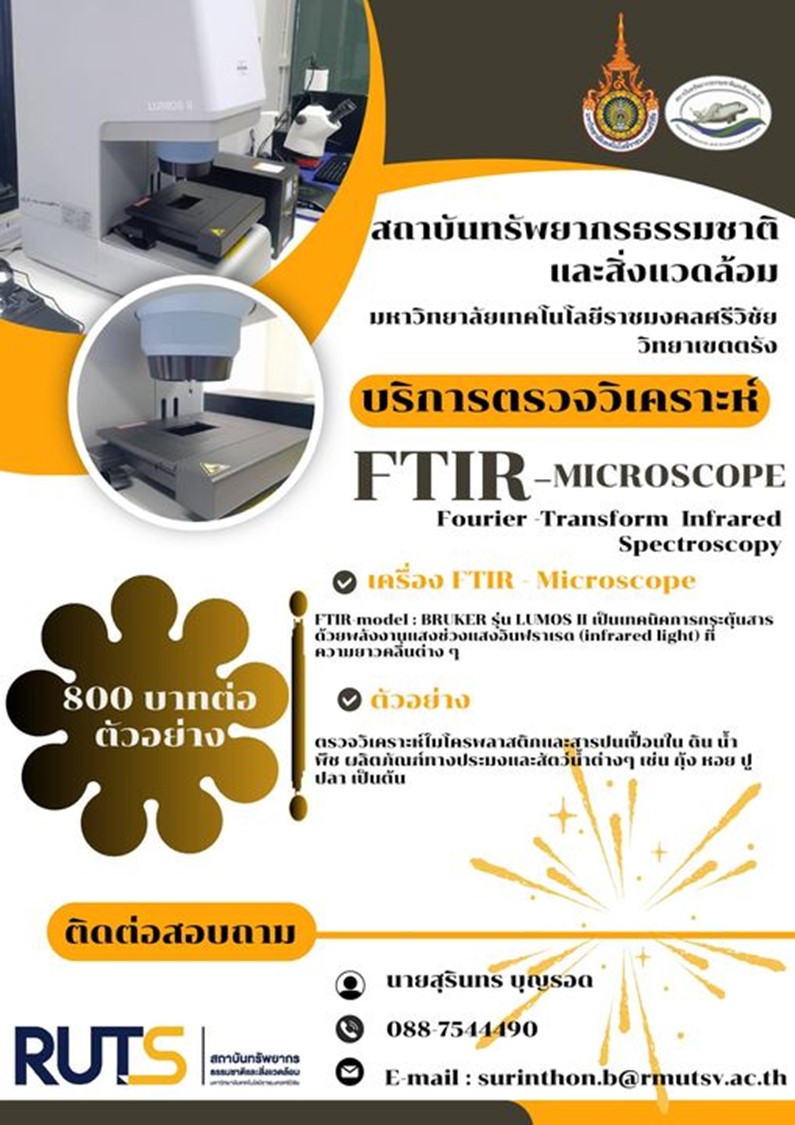
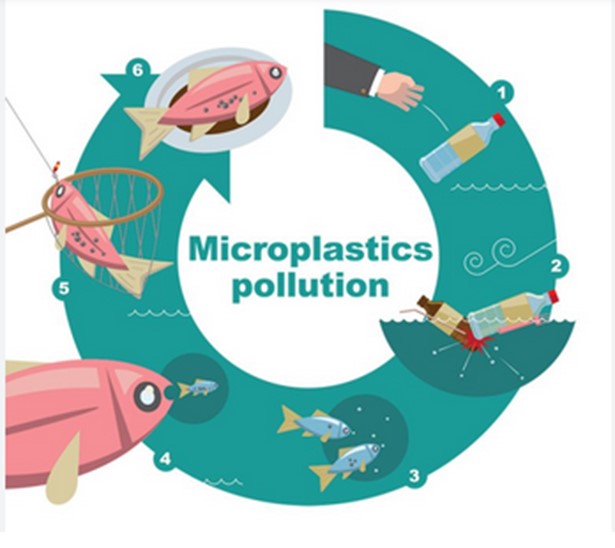
Plastics have widely replaced natural materials since the 20th century, with global production rising annually. In 2018, worldwide plastic production reached 359 million tons. Thailand ranks sixth globally for waste disposal into natural water sources, contributing to microplastic contamination through production processes. When plastic products reach the end of their life and are discarded in the trash, only 14% of recyclable plastic packaging is discarded. However, a large amount of improperly managed plastic waste products are dumped into the ecosystem. These causes affect water sources and the sea is contaminated with garbage and microplastics, causing aquatic life to have the opportunity to receive microplastics, accumulate in the body causing microplastics to enter the food chain. Microplastics are bioavailable by ingestion of aquatic organisms or by selectively eating plastics that are similar to their food. It has been reported that the accumulation of microplastics in the digestive tract of organisms causes internal wounds and digestive tract obstruction, with marine invertebrates.

Since 2021, RUTS has established a laboratory dedicated to monitoring microplastics in coastal ecosystems using a BRUKER LUMOS II Fourier-Transform Infrared (FTIR) Microscope. This lab enables precise analysis of microplastic contamination in aquatic environments, focusing on species such as shrimp, shellfish, crabs, fish, and aquatic plants, as well as fishery products in Trang Province. This initiative aligns with RUTS’s mission to monitor aquatic ecosystem health.


RUTS conducted a training program on foundational FTIR microscopy techniques for analyzing and classifying organic and inorganic compounds. The program emphasized applications for detecting microplastics and contaminants in marine species and fishery products, aiming to support advancements in commercial fisheries. Participants gained knowledge in FTIR theory, practical applications, and microplastic extraction, drawing strong interest from academics, researchers, and the public across various sectors.
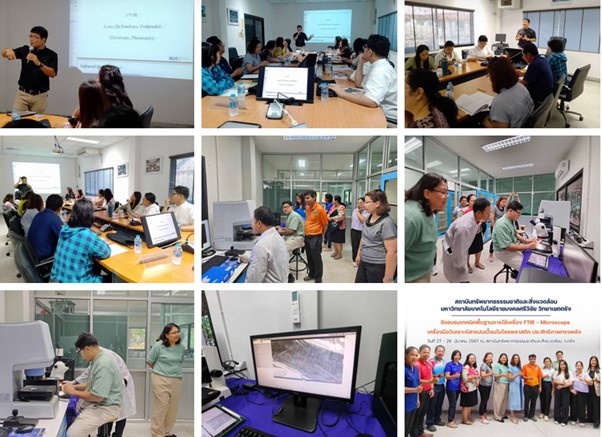
In addition, RUTS researchers have collaborated with leading Thai universities, including PSU, to investigate microplastic contamination in aquatic ecosystems, with findings published in several research journals.


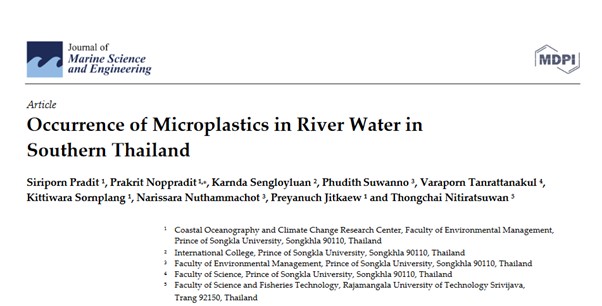
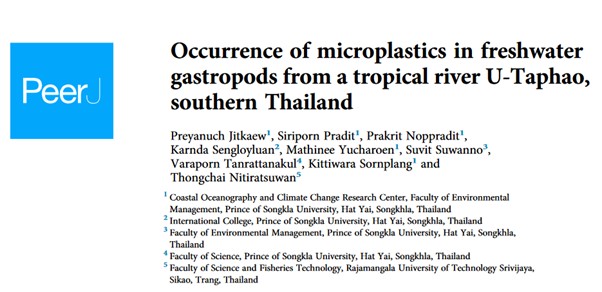
///
//
Related Links:
https://www.facebook.com/photo/?fbid=2657651251086003&set=a.122770147907472
https://www.mdpi.com/2077-1312/11/1/90
https://www.researchgate.net/profile/Thongchai-Nitiratsuwan
///

